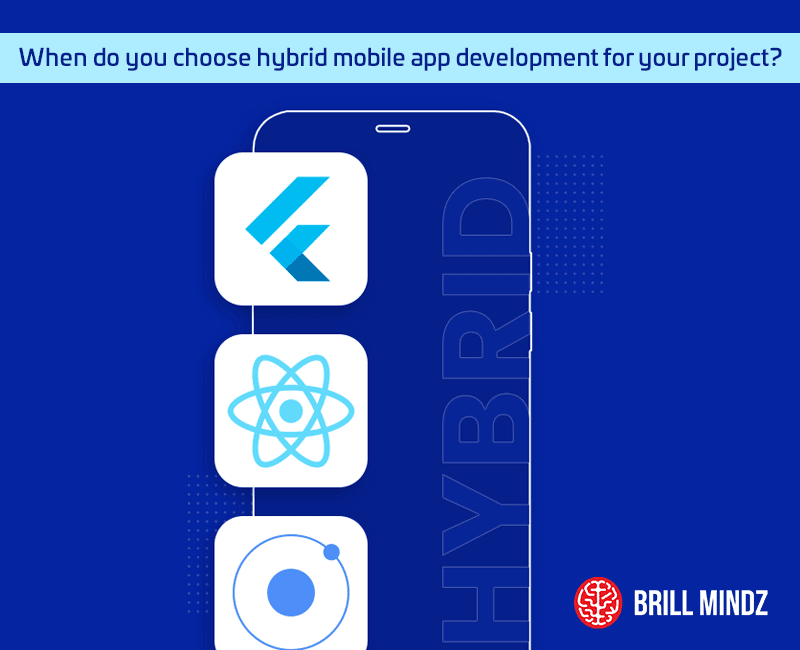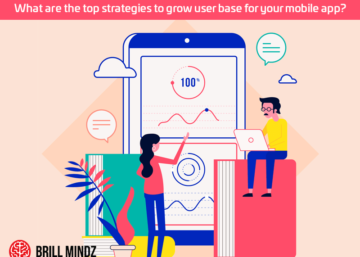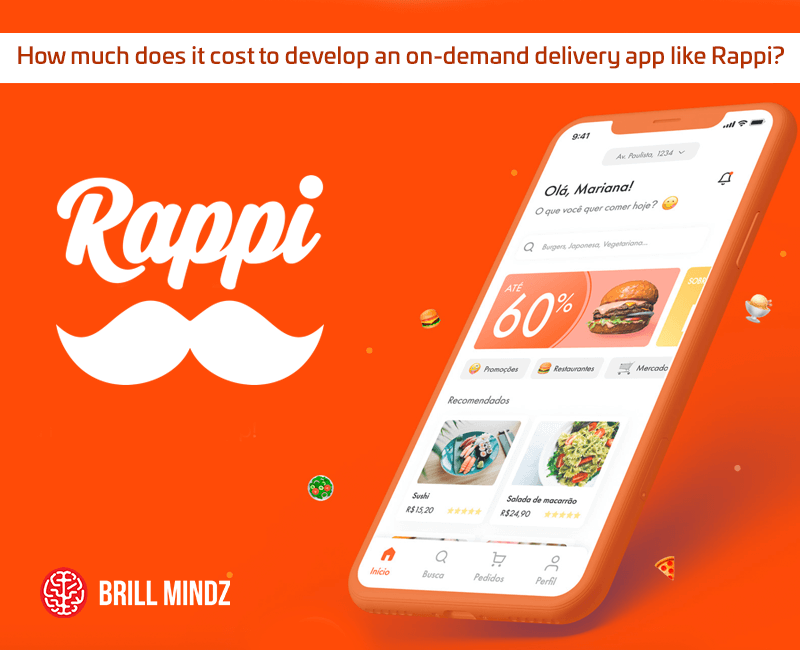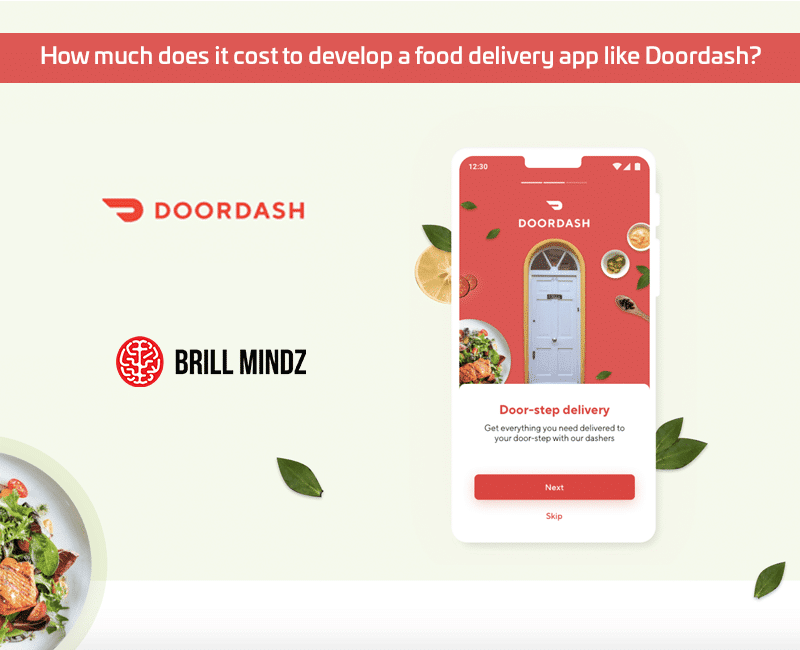When do you Choose Hybrid Mobile App Development for your Project?
In this exciting world of mobile apps, there are ample opportunities for business owners to excel in their ventures. Mobile apps have become convenient for users to get a wide range of features from the place of their choice. Every mobile app brand aims to reach a maximum number of users to market the products or services. In this regard there are two major types of mobile app development approaches in the market namely native and hybrid mobile app development. A hybrid approach is gaining popularity in the current era due to its ability to cater to multiple platforms. But how would you know if it is appropriate for your business?
About Hybrid apps in brief:
As the name implies, Hybrid mobile apps have the ability for aiding multiple platforms like Android, iOS, Windows, etc with unified code. Hybrid apps require the development of one codebase to be deployed later on required operating systems. Hybrid apps are a blend of native and web app elements. The features and performance will be of native apps but the functionality will be via browsers.
Advantages of hybrid mobile app development:
No platforms limitations:
Hybrid apps come with the quality of running the apps on multiple platforms which makes them easily run without any hiccups. Businesses who are looking to cater to customers across different platforms find this to be more feasible than other ones.
Stress-free Development:
Hybrid apps are proven to be developed more easily than native apps. The main reason will be there will not be any dependency on developing separate codes in respective programming languages. Web technologies such as exclusive versions of CSS< HTML, JavaScript, C#, etc. are the usually employed hybrid app development languages. This approach and technology combination will ensure that development can be accomplished only once along with use for multiple platforms. Not only will this take less time than the native approach but also allow stress-free development. Moreover, concerning the native apps, it won’t need to be precise for every feature or platform type. With easy development and scalability factors coming in, you can save loads on the development time in every iteration.
Suits all budgeting figures:
Every start-up will not have enough budget to fit rich features, especially in their first release version. Companies will be looking to develop a valuable product that meets their budgeting needs along with promoting the business motives. All these with less cost than native app development making it a huge factor to be measured for companies who have the budget as one of the concerns.
Maintainability:
Hybrid applications provide an effortless approach for developers to maintain the code across multiple platforms. Hybrid apps are lighter than native apps since they perform with a single code base along with the storage space. Hybrid apps can also be matched with the responsiveness of the native app when developed by an expert. Apps on multiple platforms can be energized with a unified backend with updates that can be pushed in no time. Since the app engineers will not need to maintain separate back ends for every supported platform, developers can cut largely on the development time.
Offers the unique advantage of offline Access:
Several users find it difficult not to access the apps whenever there is no network available. There was always a need to allow access to the apps even when there is no network connection. Hybrid apps allow users to access their favorite apps even if there is no internet connection. With the ability to switch between online and offline modes, hybrid apps never interrupt the users.
Also Read: How much does it cost to develop an app like Swiggy?
Optimal User Experience:
Smartly developed hybrid apps can reuse the components or design elements to offer a stress-free user experience. It will not only give a consistent feel to users across all levels but also give a satisfying brand image to the users.
Speed to Market
As mentioned earlier, the development will be easier when compared to the native app. Due to this, the overall time taken also will be less than the native method. Hence, you can plan your time to market properly to meet the delivery deadlines. Further, there will not be any need for getting any approval in hybrid app development. There will be automatic approvals along with no need for permissions for every update.
Cost-effective option:
Another important reason for becoming popular is the cost-effective nature of Hybrid apps. Native apps are rich in features, but also demand more in terms of overall budgeting figures. Businesses can build hybrid apps at a lesser cost than building a native app under the guidance of an expert.
Hybrid apps vs Native apps: Which one?
Hybrid app development lets you develop the code once and later deploy it across multiple operating systems such as Android, iOS, Windows, etc. This will be helpful for app engineers who will otherwise be working on different project updates for every platform. But native app development involves code development for only one specific platform and needs more time for development than the hybrid method. But on the positive side native apps will have richer features and performance than hybrid apps for one particular platform for which they are developed.
Finally, it is the business motives, target audience, and budgeting aspects that should be the deciding factor in choosing between the two methods. If you need to develop for several platforms at once, and you’re not worried about having a minimal feature that is not functioning on all platforms equally, then hybrid app development might be the right option for you. Never forget that your mobile app development partner can guide you to select the best-suited one.
Also Read: How much does it cost to develop an app like Zomato?
Final-thoughts:
Success in mobile app development depends on the expertise of mobile app developers. Associate with a leading mobile app development company like Brillmindz technologies can take the game to the next level. They possess extensive knowledge in developing native and hybrid mobile apps as per client requirements for attaining profitable success.













